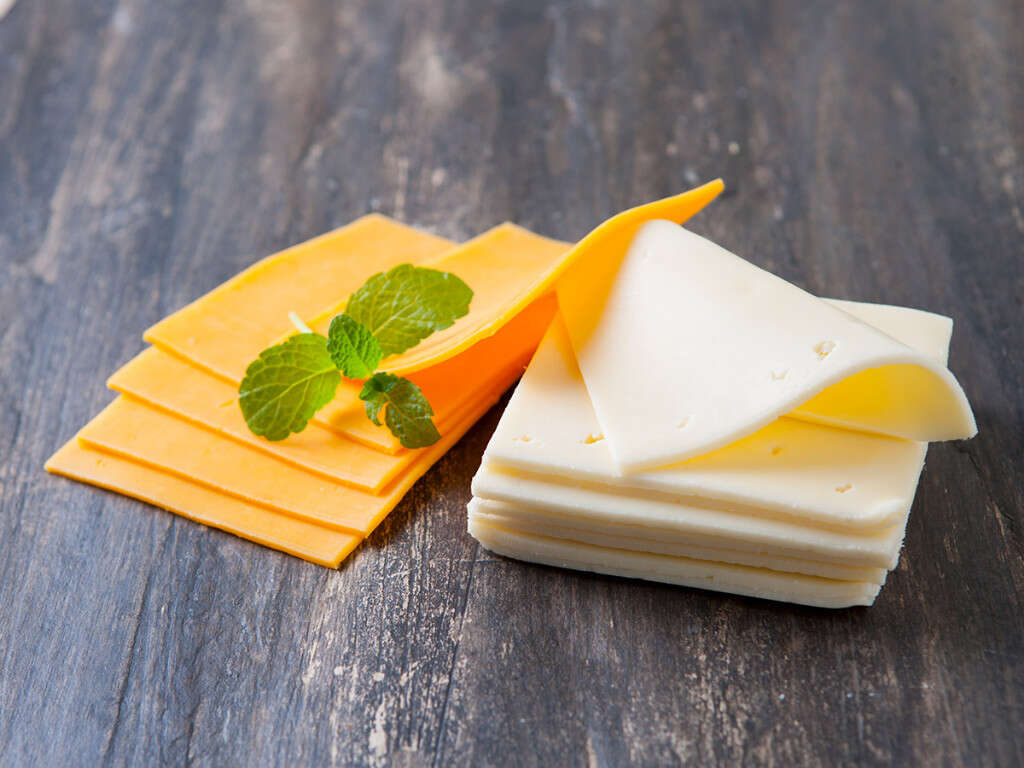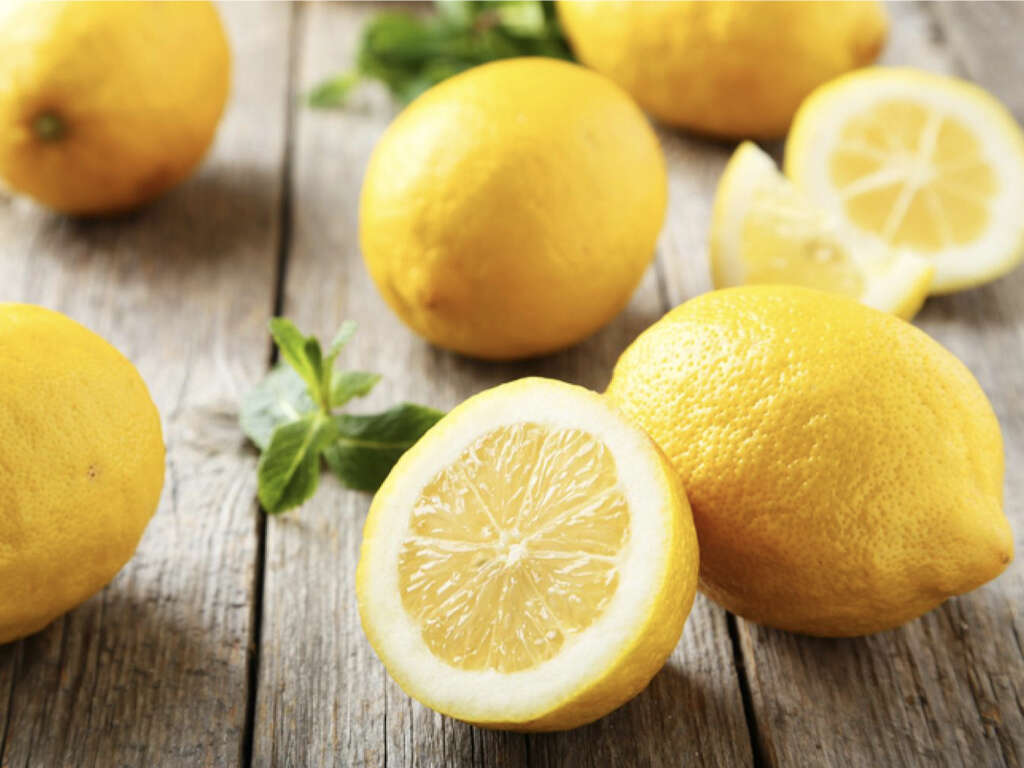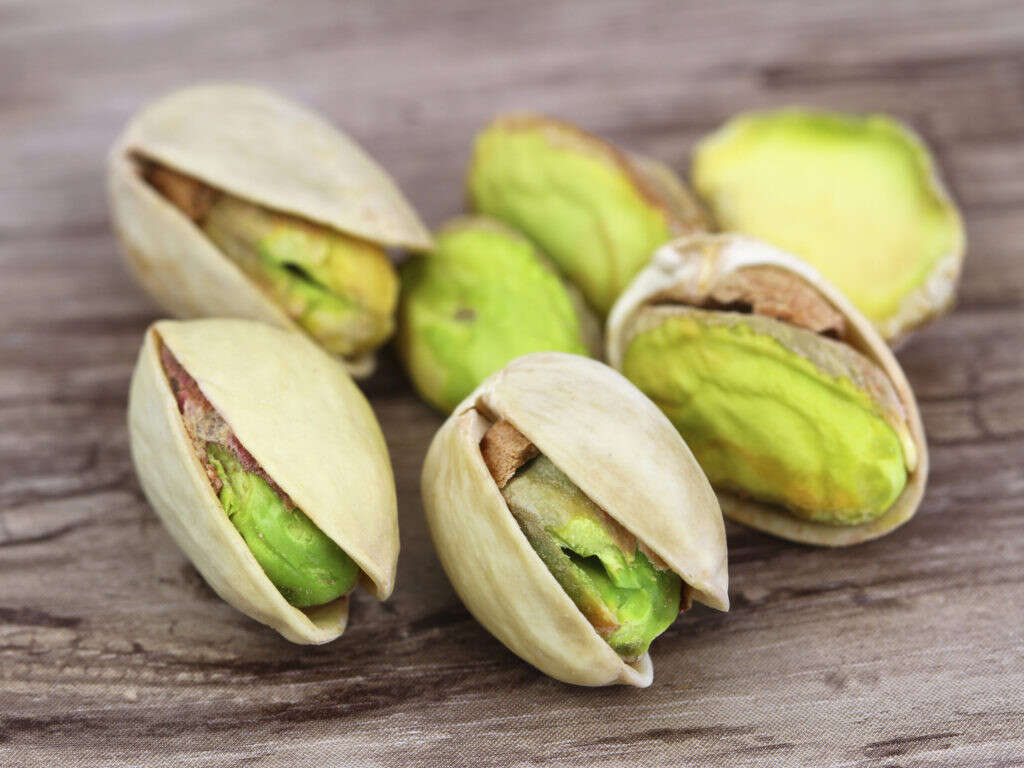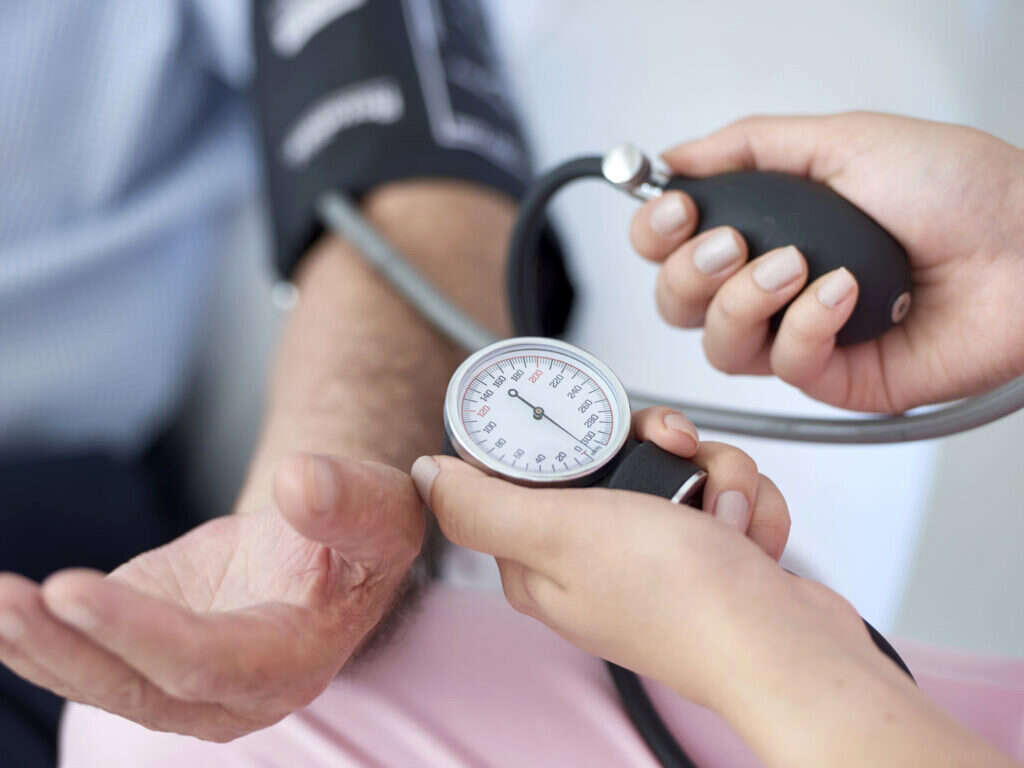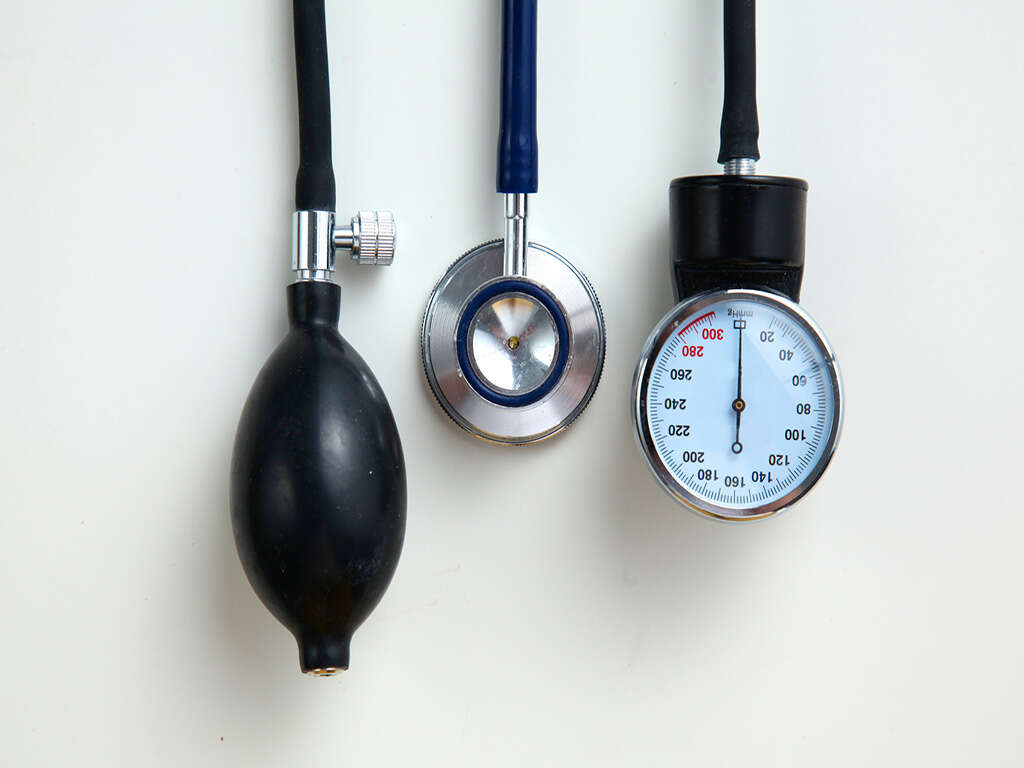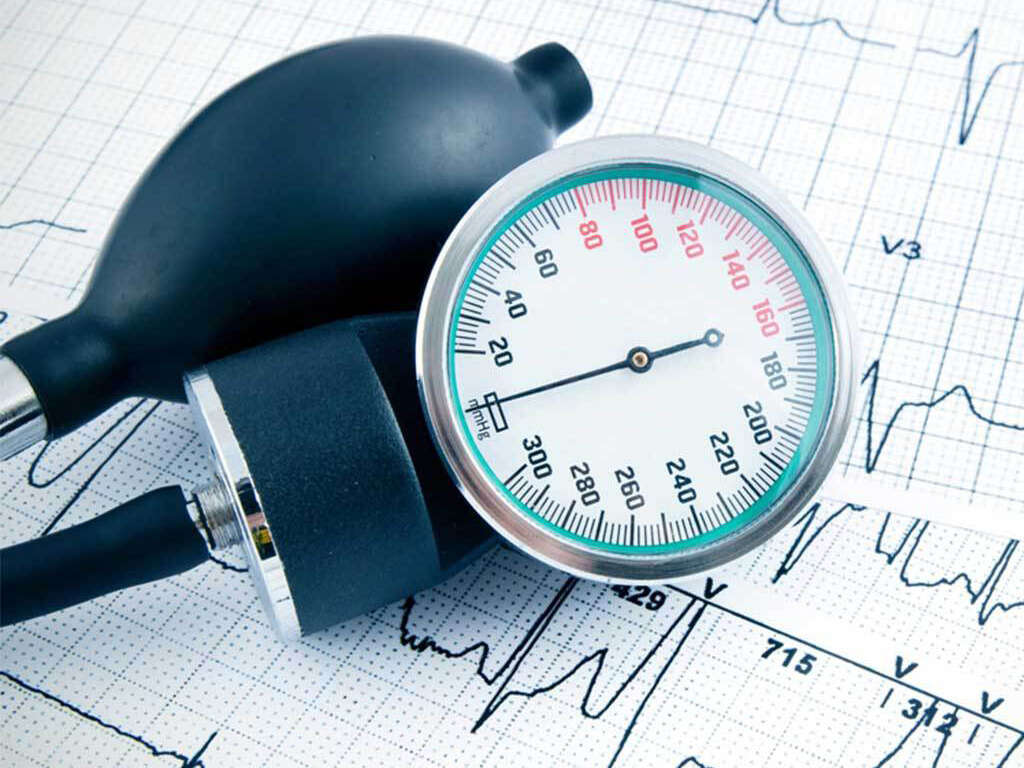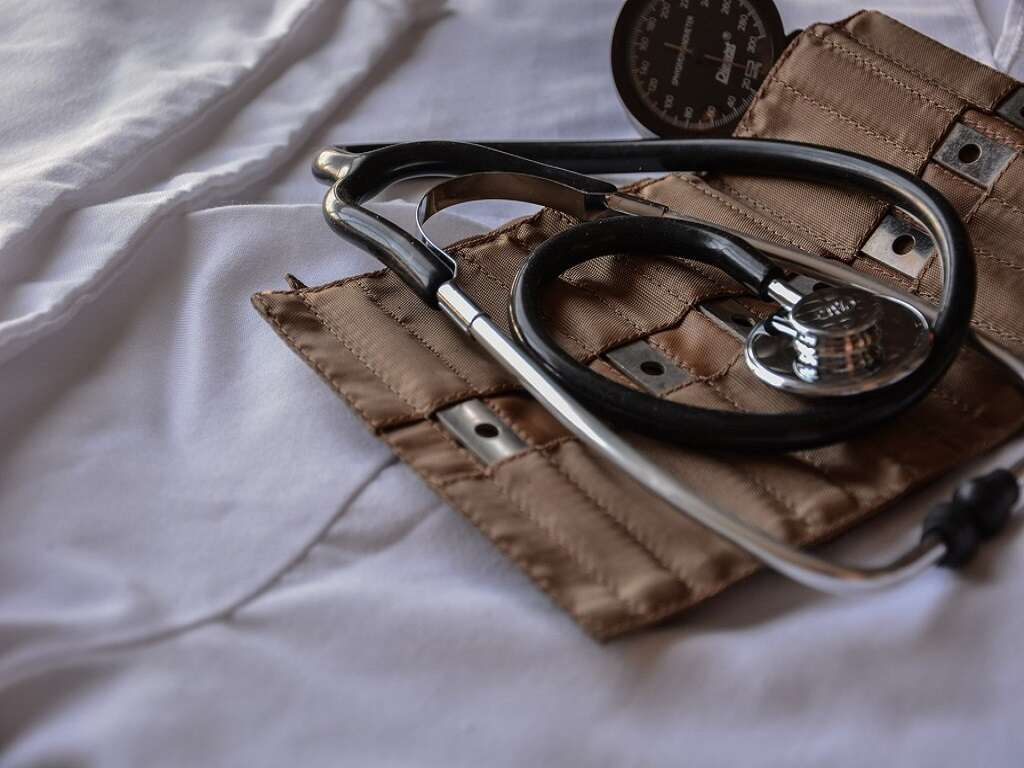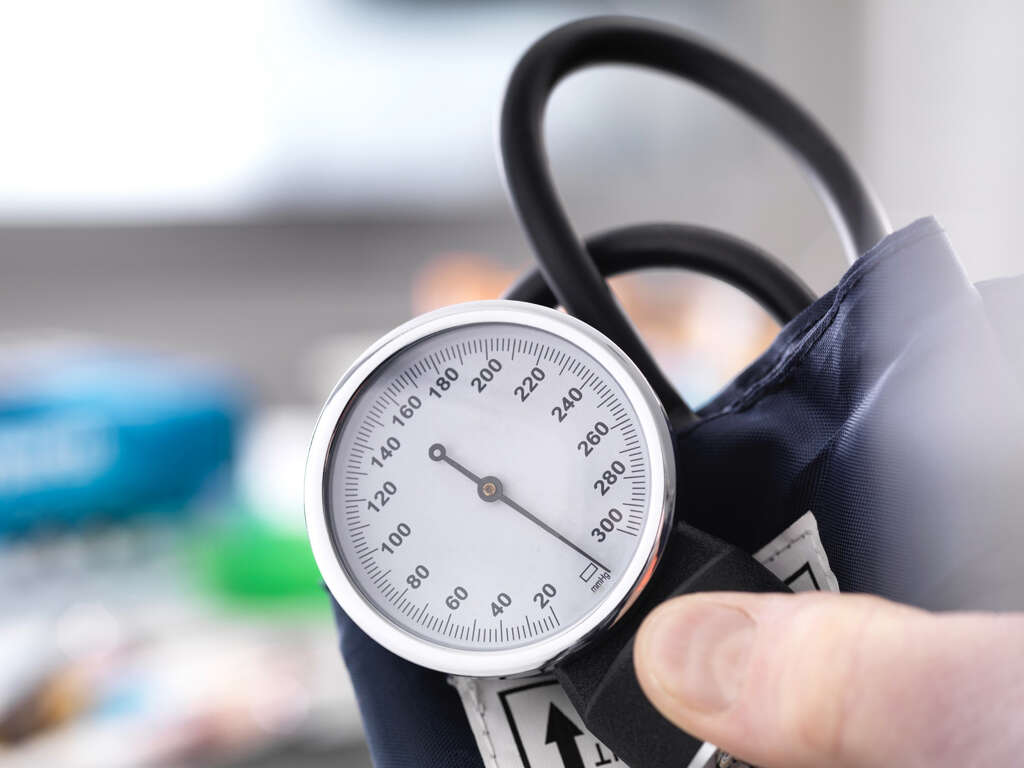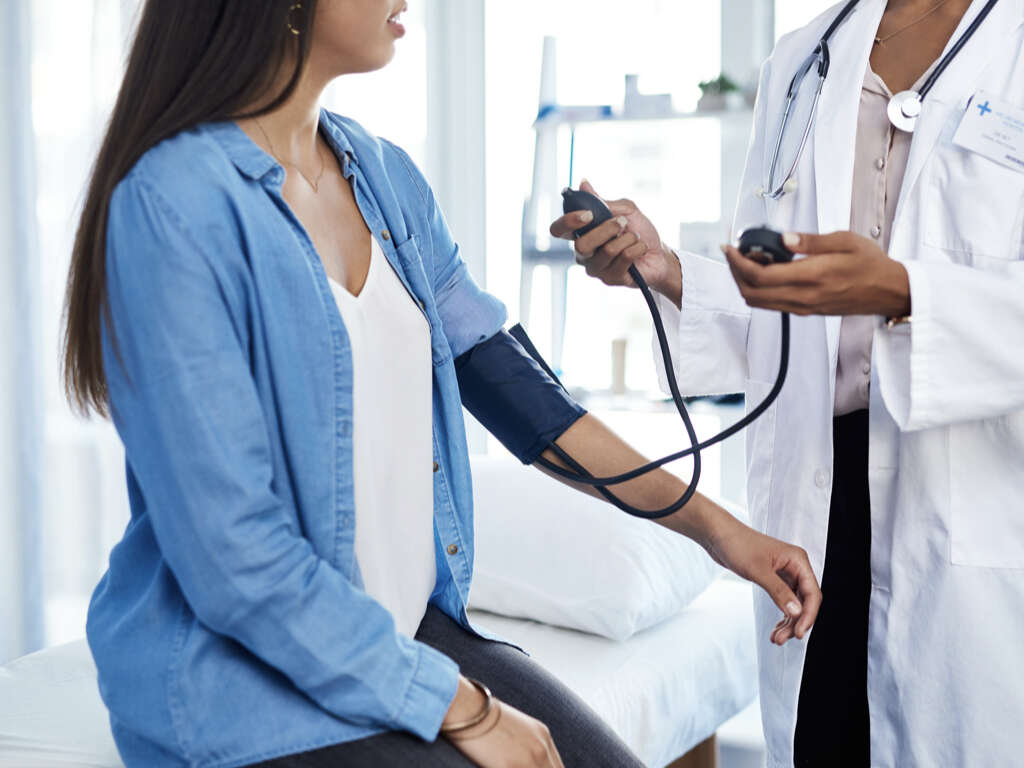10 Foods to Avoid with High Blood Pressure
High blood pressure has the potential to lead to some very serious health problems. It can lead to heart disease and other problems that can pose a very real threat to your life. If you do have high blood pressure, then you should do what you can to restore it to healthy levels as soon as you can.
One of the biggest influences on our blood pressure is the food that we eat. In modern times we often neglect our diet, choosing convenience and speed over healthy and nutritious meals. Preservatives like salt and poor-quality ingredients are often used. Salt, too much fat, and other factors can all contribute to high blood pressure.
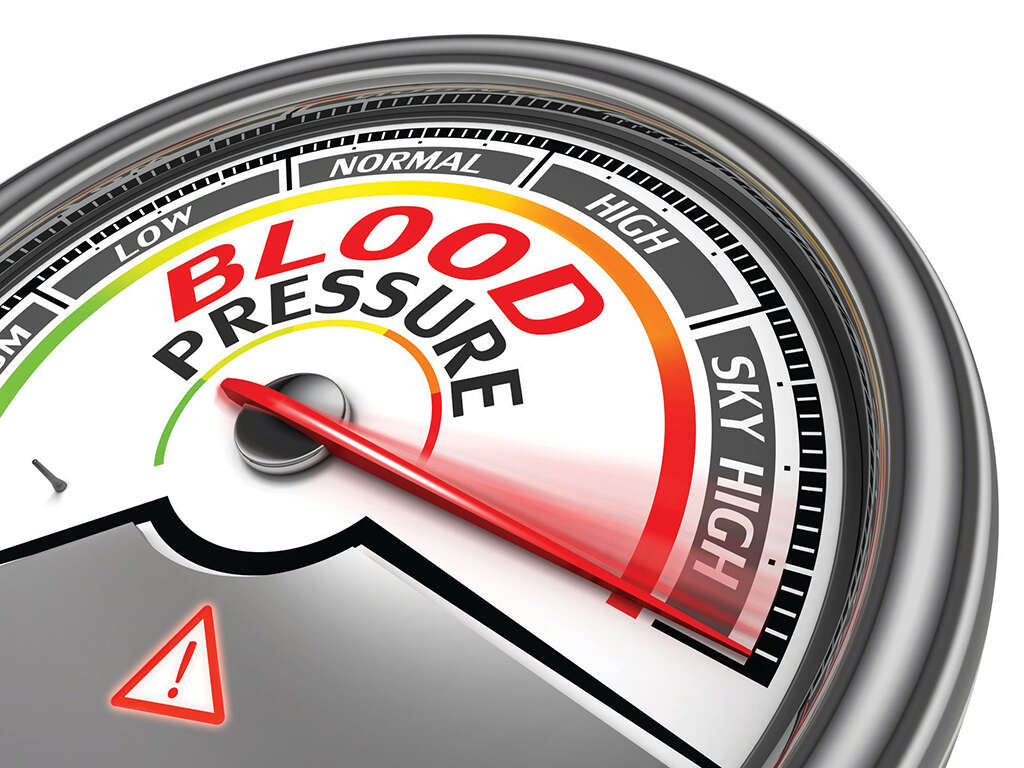
Food to Avoid with High Blood Pressure #1: Salt
Did you know that salt once used to be a valuable commodity? It was highly sought after and held high value in trading. While it is still very much in demand nowadays, the supply meets the demand, meaning it is now so much more affordable. It is used worldwide as a seasoning and in other ways, but it is not good for us if we use too much.
Salt is one of the biggest contributors to high blood pressure. While a lot of the salt in peoples’ diets does come from processed foods, we also tend to add too much as seasoning. Try to cut down on how much extra salt you add to your food at dinnertime.

Food to Avoid with High Blood Pressure #2: Canned Foods
In some ways canned foods revolutionized the way that we distribute and eat food. The secure seal meant that we could store food for a long time, helping us to transport it over long distances. As beneficial as it can be, though, it tends to be highly processed and contains a lot of salt.
If you are using canned food, check first to see how much salt it contains. Some manufacturers will reduce the amount of salt or even eliminate it altogether. Where possible, it would be even better not to use canned foods at all and cook your meals from fresh ingredients instead.
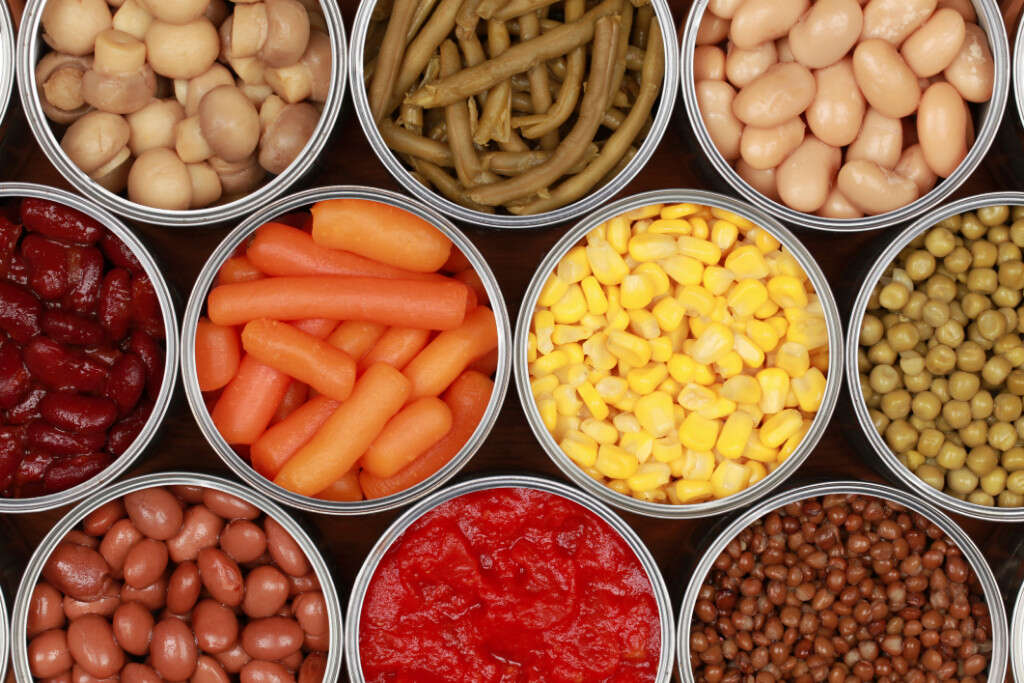
Food to Avoid with High Blood Pressure #3: Deli-Meats
Deli-meats are simply delicious. They help make some of the best sandwiches that you can think of and can be enjoyed in so many other ways. They are also very convenient and easy to use, making them ideal for people in a rush. The bad news, though, is that deli-meats can be very bad for you indeed.
Salt has been used as a preservative for thousands of years and many deli-meats still use salt as part of the curing and preserving process. This high salt content is very bad for us and can contribute significantly to high blood pressure. The problem is often made worse with other ingredients that are also high in salt.
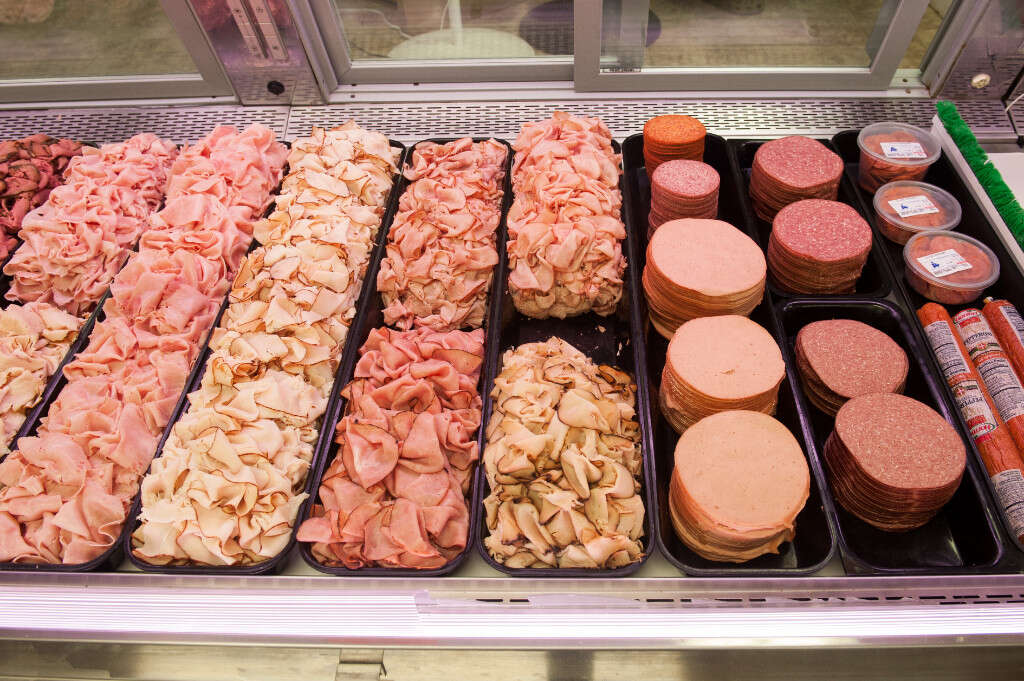
Food to Avoid with High Blood Pressure #4: Sugar
It is no secret that too much sugar is bad for us, no matter how much it might help to make food taste good. Refined sugar, in particular, is the worst type and the kind most often found in cooking. Candies and deserts, in particular, are high in sugar and many drinks also have a very high sugar content.
One of the biggest problems with sugar is that the body is unable to metabolize it in high quantities. This means it then gets stored as fat and this can lead to obesity. Obesity is a major cause of high blood pressure as well as a range of other potentially serious problems.
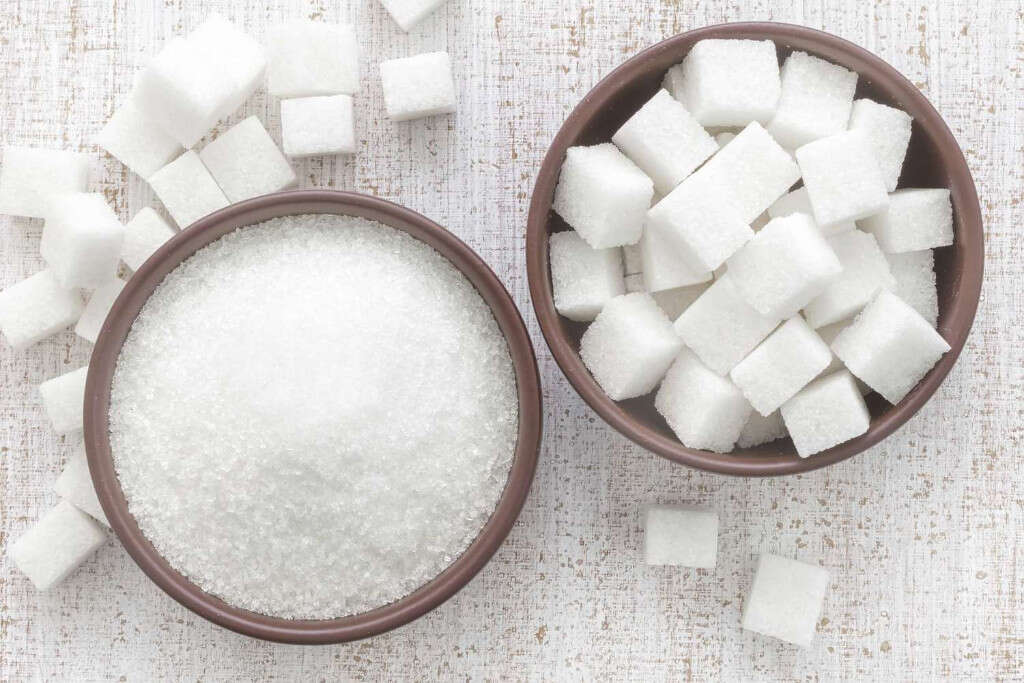
Food to Avoid with High Blood Pressure #5: Alcohol
There’s nothing wrong with having a drink from time to time. In moderation, it could even have positive effects on your overall health and well-being. The problems arise when it is consumed in excess and it can lead to some very serious problems indeed. One of the biggest problems associated with excess alcohol consumption is high blood pressure.
Not only can short-term binging increase your blood pressure temporarily, but regular drinking can lead to high blood pressure in the long term. In addition to the alcohol itself, alcoholic drinks also tend to have high sugar content, contributing to obesity. While there’s nothing wrong with having a drink, try to do so in moderation.

Food to Avoid with High Blood Pressure #6: Red Meat
There’s nothing quite like a juicy steak from time to time. Red meat is quite delicious, and it is also packed full of essential nutrients such as animal protein, important fats, vitamins and minerals. As tasty and beneficial as they are, though, they can also contribute to high blood pressure.
One of the unhealthiest aspects of red meat is its high-fat content. Although important to us, these fats can contribute to a host of health problems if eaten excessively. You should try replacing red meat with white meat more often, or at least ask for the fat to be trimmed from your steak.
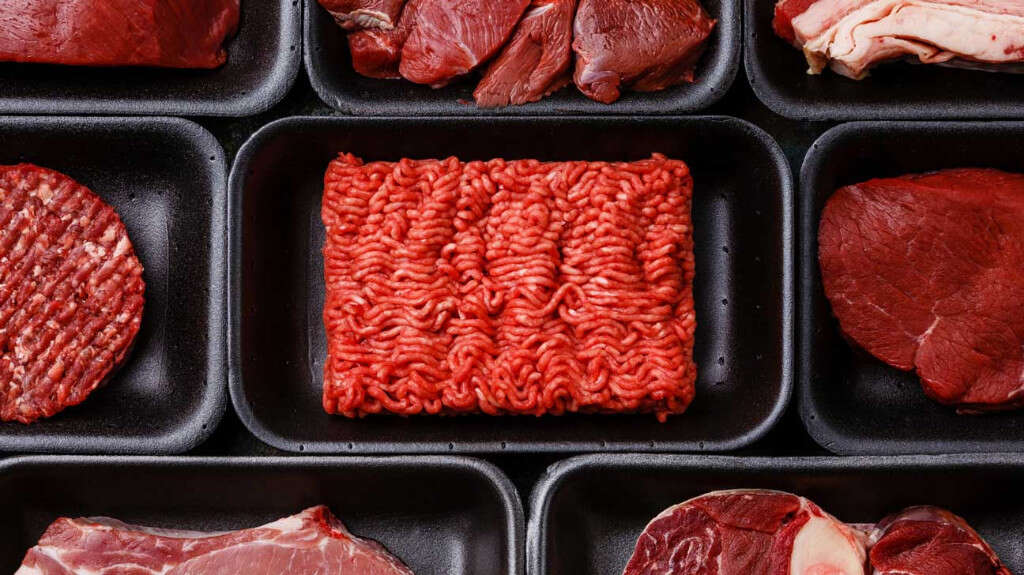
Food to Avoid with High Blood Pressure #7: Pickles
While many people choose to remove the pickles from their burgers, many more welcome them. Pickles aren’t only for burgers either and can be used as accompaniments or as ingredients in other dishes. They also come in a range of varieties but, unfortunately, they are not without their drawbacks.
Pickling is a method of preservation, which often involves a lot of salt. As such, pickles tend to have a very high sodium content, meaning that you should keep well clear if you are trying to keep your blood pressure down. Where you can, try to look for fresh fruit and vegetable alternatives instead.

Food to Avoid with High Blood Pressure #8: Ready Made Meals
Quick and easy, ready-made meals are a godsend to people that have little time in the day for cooking. Just put them in the oven or in the microwave and you will soon have a meal made with the minimum time and effort from yourself. As convenient as they are, you really should try to keep clear where possible.
Ready-made meals are heavily processed and, as such, they tend to contain a lot of preservatives. This often means a lot of salt and sodium. Where possible you should try to make your own meals from scratch instead. Fresh meals are healthier, better tasting and are often quicker to make than you might think.
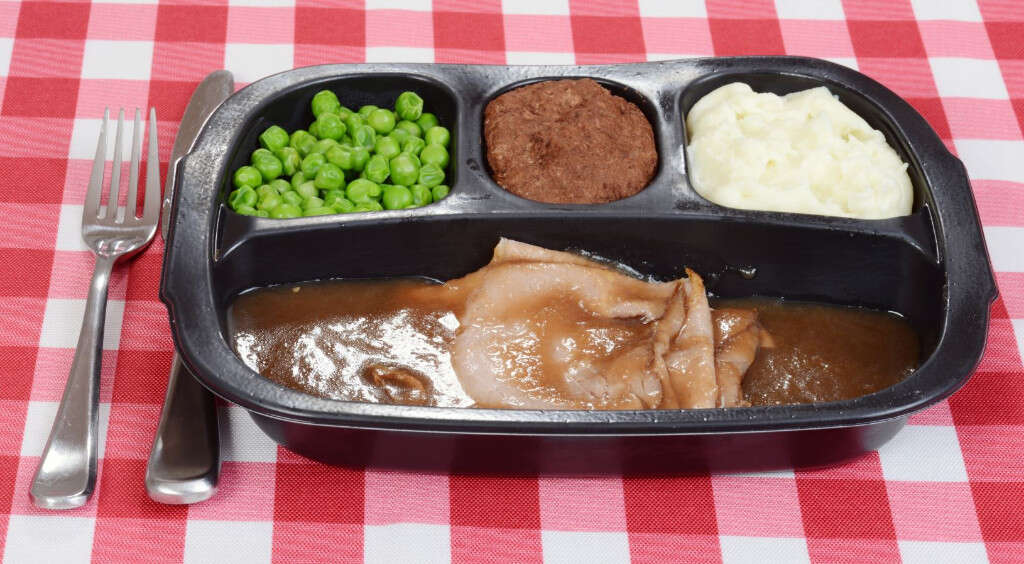
Food to Avoid with High Blood Pressure #9: Ready Made Tomato Sauces
Ketchup is popular all over the world. It is great on burgers and can be used on a huge variety of other dishes. Other tomato-based sauces include pasta sauces that come straight from a tin or a jar and purees that are used on pizzas and in a host of other dishes. The bad news, though, is that these tend to contain a lot of salt.
Shop around and you may well find varieties that are low in salt and sodium. Even better, you could try making your own sauces from fresh ingredients. With a little practice, you should find you can make something that tastes far better than anything that’s ready-made.
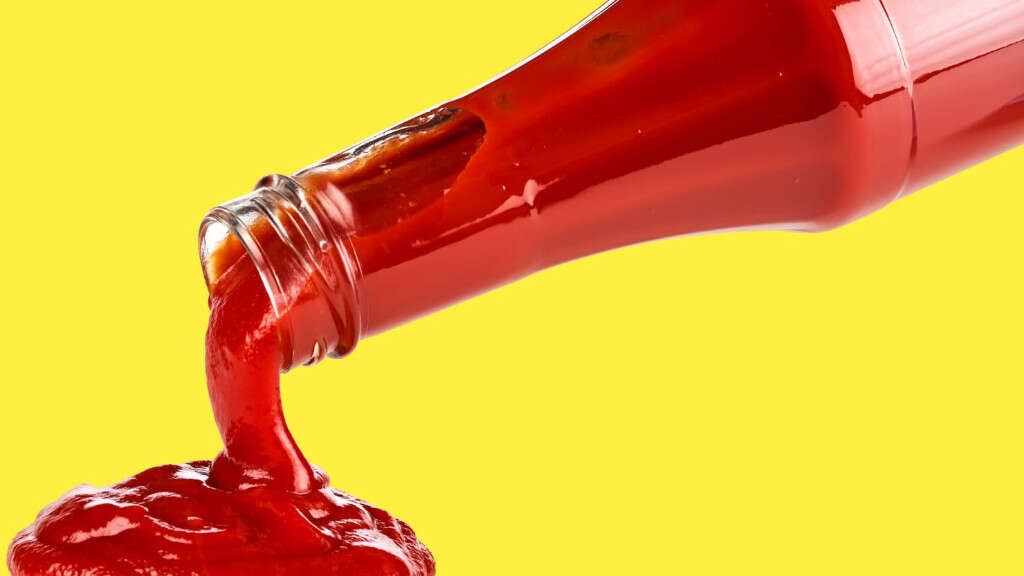
Food to Avoid with High Blood Pressure #10: Fast Food
Isn’t fast food great? It tastes good and comes served hot just moments after you order it. Kids love it and it’s a great way to get a quick meal when you are out and about. Unfortunately, fast food is one of the biggest contributors to high blood pressure and other health problems worldwide.
One of the biggest problems with fast food is that the restaurants will often source cheap, poor quality ingredients to improve their profits. This means foods with a high-fat content and ingredients that are heavily processed, meaning high levels of salt and sodium. If you do crave a burger or similar, you could try making one with high-quality fresh ingredients for a healthier alternative.




